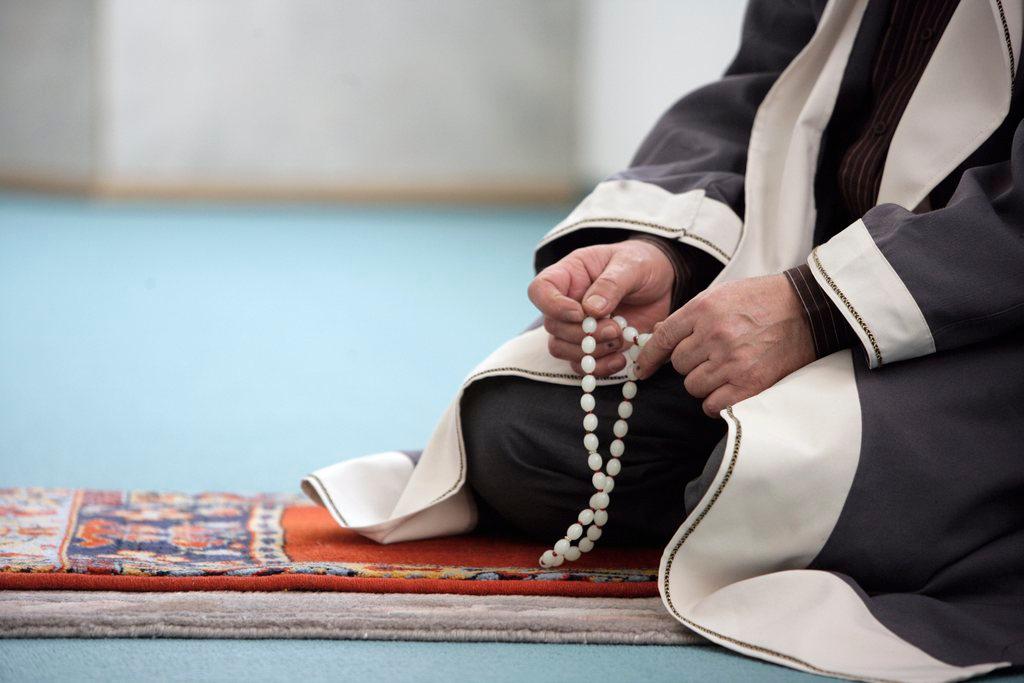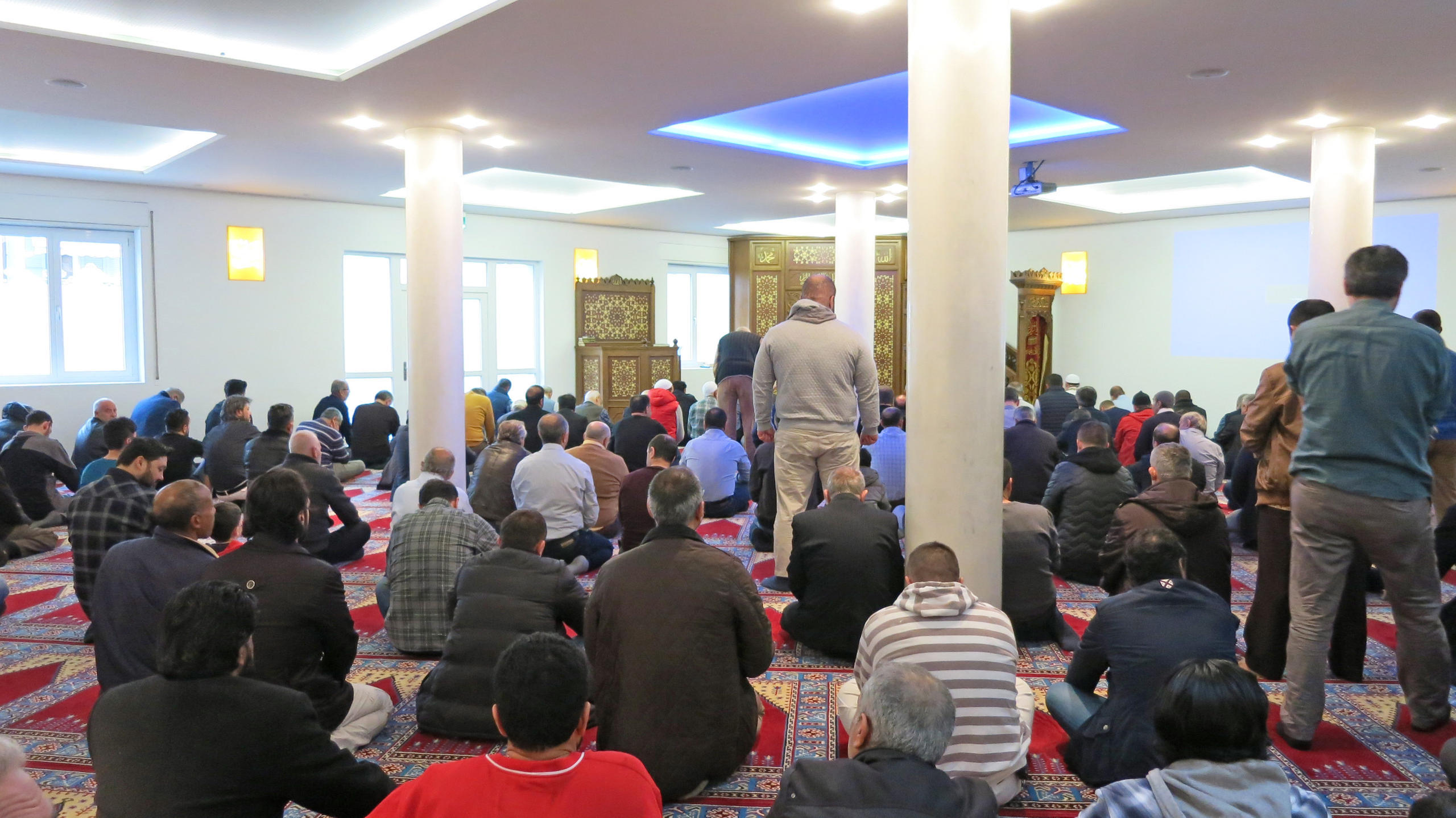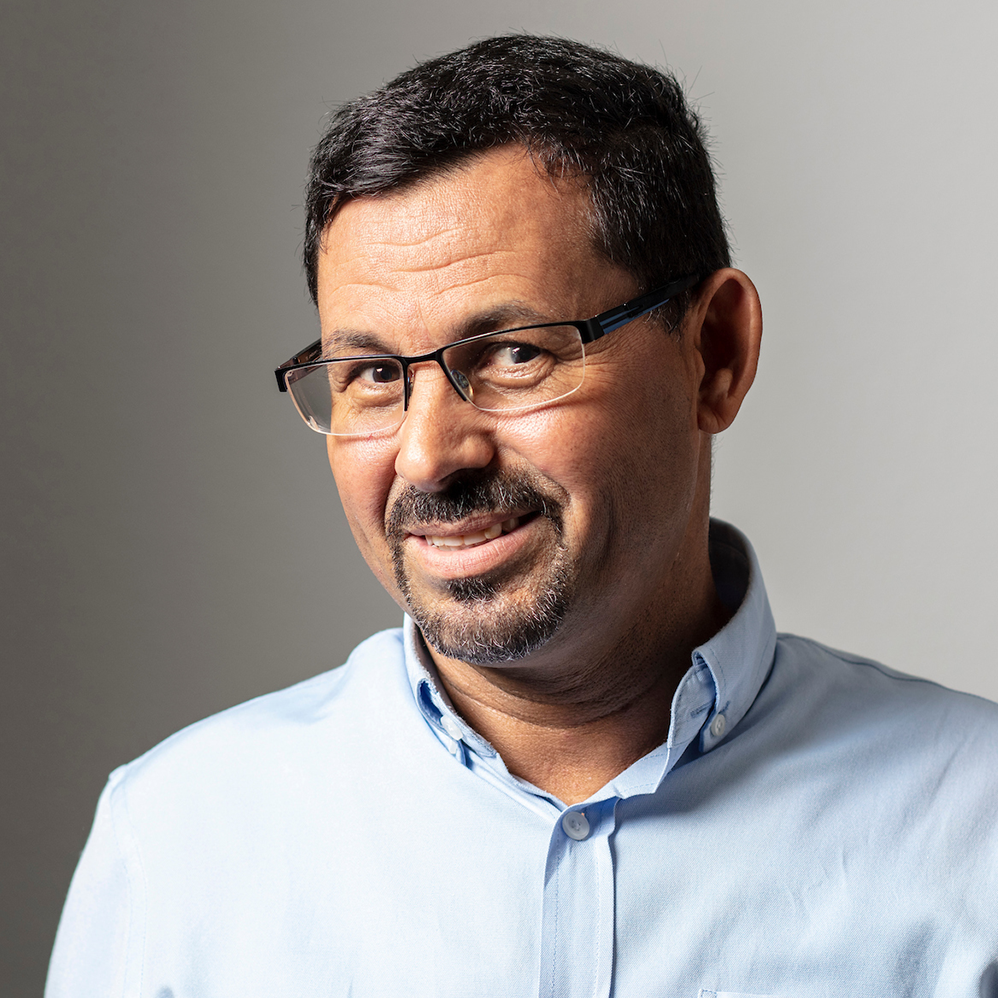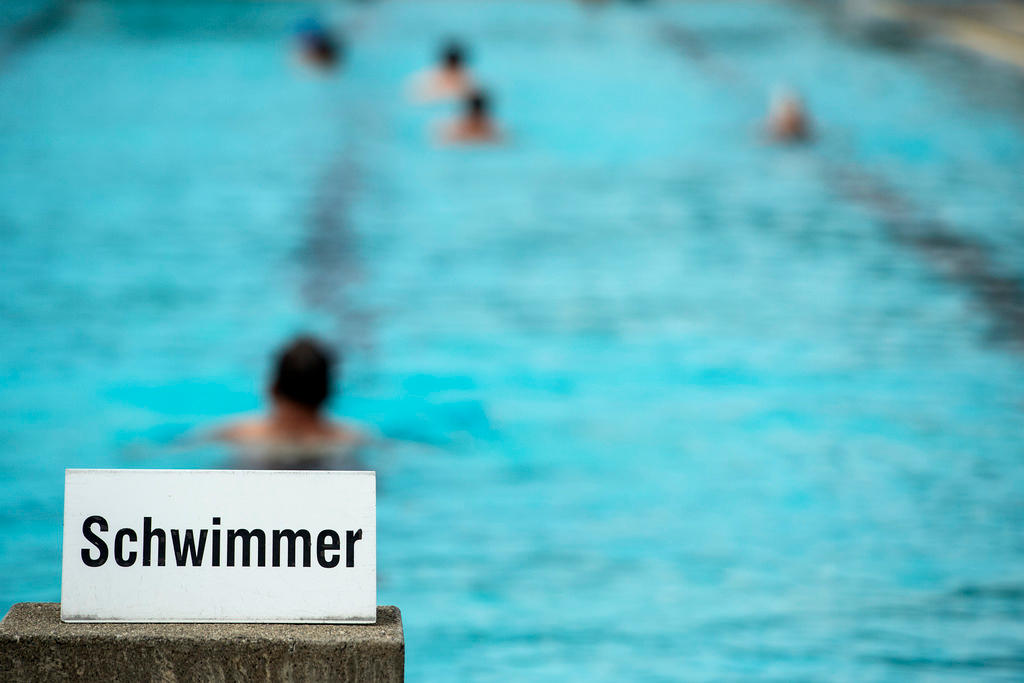Imam: 99% of radicalisation happens outside mosques

A recent opinion survey revealed that two-thirds of the Swiss refuse to recognise Islam as an official religion like Christianity or Judaism, requiring Muslims in Switzerland to make a greater effort to integrate better.
The results pose a challenge to the imams, in view of the importance of their role in community life, and their active engagement in the process of integration and fight against religious extremism, and the conditions needed for them to play a better role. To find out more, swissinfo.ch interviewed the imam of La Chaux-de-Fonds, Noureddine Ferjani.
Following media reports about the alleged radicalisation of areas around Swiss mosques, calls for transparency have grown across the country. Some politicians want to require imams to preach in one of Switzerland’s national languages. In 2009, Switzerland became the first country in Europe to vote to curb the religious practices of Muslims through approval of a referendum banning any new construction of minarets on mosques.
swissinfo.ch: Do you think the imams in Switzerland should give their sermons and lectures in mosques in one of the Swiss national languages?
Noureddine Ferjani: There is a verse in the Koran which states: “We sent no messenger except one with the language of their community,” in the sense that the messenger – when there is a community – must speak in the language of this community. Today we are in Neuchâtel and La Chaux-de-Fonds, where the official language is French, so I speak this language with my fellow citizens and with those who share my religion.
Of course, the religious texts of reference are in Arabic, so it is logical that a part of it will include explanation in this language, but the greater part of the discourse addressed to the faithful must be in French, since those around me do not understand the Arabic language.
swissinfo.ch: But what happens if the imam does not know the context (social, legal, cultural) of the country, and does not master the national languages? Can he take on his role as imam?
N.F.: Here again I must refer to the same verse, but in the sense that the language here does not mean only the spoken or pronounced language, but a whole system of thought, philosophy, culture … which encompasses all the social aspects.
In order to fully assume his role, the imam must certainly master the official language of the city where he lives, of his canton, and must be trained and informed on all aspects and at all levels to know what is going on around him and in his environment. In this case, he can propose solutions to the faithful. The imam must, for example, study the history of the canton, know about its laws … because all this will help him to convey a message in accordance with the context in which he lives.
It is true that in every religion, there are fixed principles and values, but these values are also widely shared with society and other religious traditions. In Islam, for example, there are immutable values, but legal opinions change according to the times and places, thanks to what scientists call “qualified silence”.

More
Saying prayers and answering questions at local mosque
swissinfo.ch: For a busy imam in Switzerland, is it possible today to acquire this knowledge and these skills?
N.F.: Today, this task is not easy at all. One can demand anything that one wants from an imam who is salaried and who has a fixed job, but an imam who assumes this function voluntarily, as is the case for 90% of the imams in Switzerland, it is almost impossible. These imams also have to do something else to earn a living. The day when imams become wage earners, we can talk about demands. Today, the minimum remains the mastery of a national language.
swissinfo.ch: There is much talk today about the importance of imams in the process of de-radicalising certain young Muslims. Do you get enough help and support from the authorities to carry out this fight and contribute to social peace?
N.F.: My own experience and the reality on the ground show that the imams are making efforts, and that the majority of Muslim organisations do the same to prevent the radicalisation of young people, but we don’t see efforts from the other side. Of course, the journalists come and ask us what we do, but as ever, they take shortcuts and do not look at the phenomenon in its entirety or consider all the factors. They ask us why young people become radicalised, but we have said and we repeat: the vast majority of cases have nothing to do with mosques. The radicalisation is almost 99% outside the mosques, because these young people know that at the mosque, they will listen to a discourse that calls for tolerance and integration.
Imams have been doing their work for years, as has the majority of Muslim organisations, and yet the media is constantly criticising us and targeting us for a phenomenon that the governments in Switzerland and elsewhere have been unable to find a solution until today. The authorities constantly talk about projects and ideas, but on the ground, we see nothing. To my knowledge, we are the only ones who work on this subject.
swissinfo.ch: What do you think of a law that would require imams in Switzerland to preach and lecture in mosques exclusively in a national language?
N.F.: I think we cannot solve this kind of question by coercion, on the one hand; on the other hand, are we going to single out Muslims with something not required in other communities? This would make the ban a discriminatory measure that would only accentuate the fractures. Do we, for example, prohibit the use of Latin or Greek or the Portuguese language in churches? I prefer to talk about awareness instead of coercion or prohibition. Not to mention lack of resources, especially financial, because language learning requires a lot of money.
swissinfo.ch: Recently, in certain cases in some mosques (Geneva, Basel, Winterthur …) there have been headlines about some of the imams – according to some media – playing a role in the radicalisation of a few young people or in the departure of others to areas of armed conflict? What is your reaction to these cases?
N.F.: Naturally, my first reaction is to check what is right and what is wrong in what has been reported by the media. Secondly, the role of mosques is to call to reason, to guarantee social cohesion and to call the faithful to set an example in society. There is no trusted Muslim scholar who gives legal advice in favour of violence, or hatred, or who does not condemn terrorism. So if it turns out to be accurate that an imam of Winterthur called on the faithful to kill non-practising Muslims, it would mean that this imam did not understand his own religion: that incitement to hatred is unacceptable without question.
Muslims in Switzerland
According to the latest estimates, the number of Muslims living in Switzerland is between 400,000 and 450,000, accounting for nearly 4.5% of the total population. The great majority of Muslims in Switzerland are of European origin – mainly Turkish and Albanian (from Kosovo and Bosnia-Herzegovina). Muslims of Swiss origin represent 11% of this community.
Over the past two decades, the number of Islamic centres, community associations and stores that sell Halal food has increased dramatically. There are now more than 250 Islamic centres in Switzerland with a composition as follows:
45% Turkish
40% Albanian, Kosovar and Bosnian
15% Arabs
Translated from French by John Heilprin

In compliance with the JTI standards
More: SWI swissinfo.ch certified by the Journalism Trust Initiative












You can find an overview of ongoing debates with our journalists here . Please join us!
If you want to start a conversation about a topic raised in this article or want to report factual errors, email us at english@swissinfo.ch.